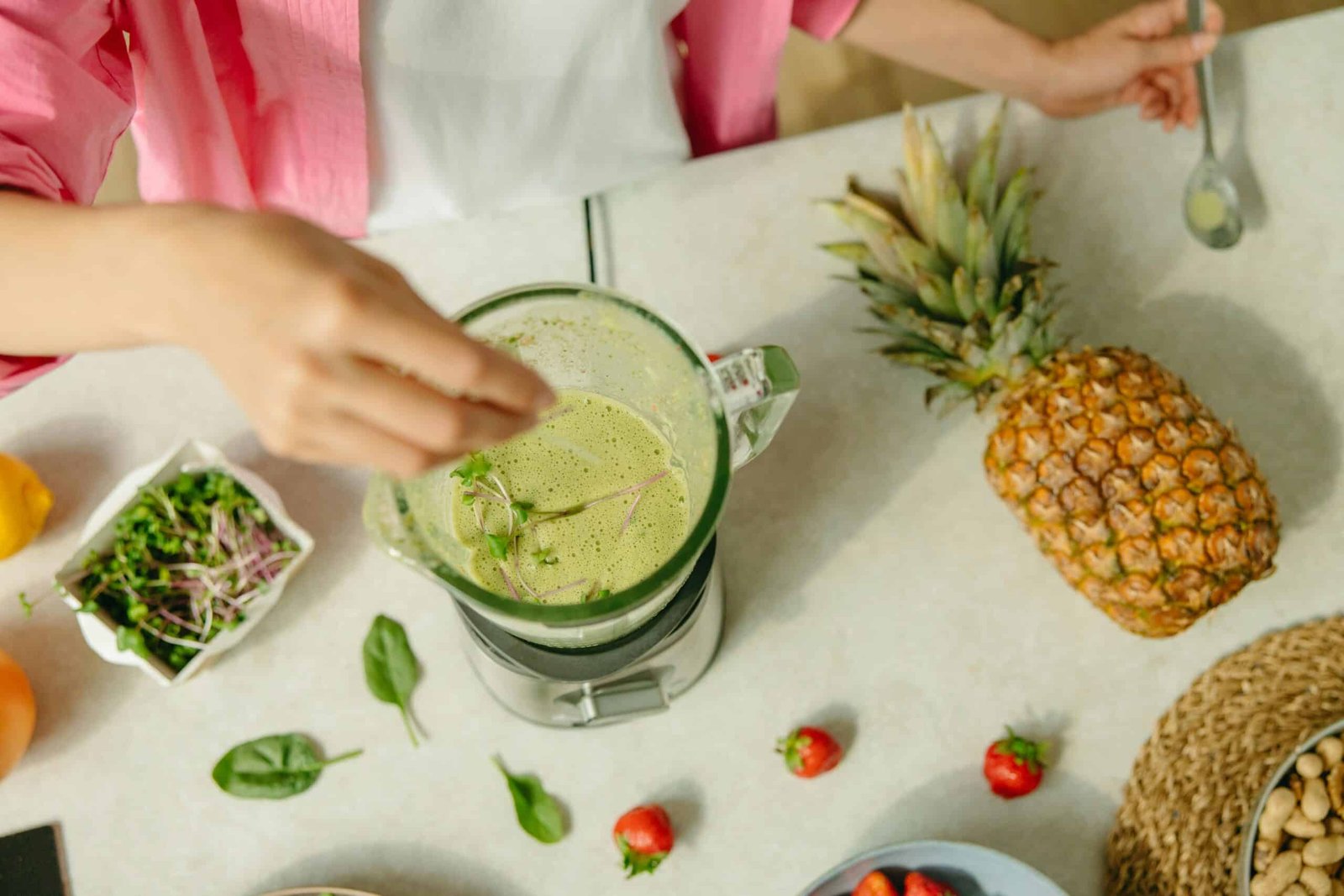Is the juicer the champion of nutrient extraction, or does the versatile blender have the upper hand? The truth is, both appliances serve different purposes, and the right choice depends on your goals, lifestyle, and health priorities.
In this guide, we’ll break down the pros and cons of juicers and blenders, compare nutrition, performance, and value, and help you decide which tool fits best in your kitchen.
Nutrition: Juice Concentration vs. Fiber Retention
One of the biggest differences between juicers and blenders lies in how they process fruits and vegetables.
- Juicers:
- Extract juice by separating liquid from pulp.
- Deliver a nutrient-dense drink — one glass may contain the equivalent of 7–10 pounds of produce.
- Best for quick nutrient absorption and detox routines.
- Blenders:
- Process whole fruits and vegetables, keeping the fiber intact.
- Create thicker drinks (like smoothies) that support digestion and promote fullness.
- Ideal for balanced, meal-like drinks that sustain energy longer.
Takeaway: Choose a juicer if you want fast nutrient delivery without the fiber. Go with a blender if you prefer complete, filling beverages that support digestion and blood sugar stability.
Performance: Speed, Noise, and Efficiency
Beyond nutrition, performance can influence your decision.
- Blenders (like Vitamix or Ninja):
- Very fast — smoothies, soups, or sauces are ready in seconds.
- Moderate noise level, depending on the motor power.
- Can handle dense ingredients such as nuts, seeds, and frozen fruit.
- Juicers (like Nama or Omega):
- Slower, especially with cold-press models, but they extract juice efficiently.
- Typically quieter than high-speed blenders.
- Focused on producing nutrient-rich juice with minimal heat and oxidation.
Quick comparison:
| Appliance | Speed | Noise | Nutrient Focus | Versatility |
| Blender | Very fast | Moderate | Retains fiber | High (smoothies, soups, sauces) |
| Juicer | Slower | Lower | Concentrated juice | Lower (pure juices only) |
Takeaway: Blenders win for speed and versatility, while juicers shine when nutrient concentration is your top priority.
Cost and Convenience
Another important factor is how much time, money, and effort each appliance requires.
- Blenders:
- Typically more affordable.
- Use less produce per serving.
- Easier to clean with fewer parts.
- Juicers:
- Often more expensive upfront.
- Require large amounts of produce (which increases grocery costs).
- More time-consuming to clean because of multiple components and pulp.
Takeaway: If convenience and budget matter most, a blender is usually the better value.
Should You Own Both?
Some people find that having both appliances works best:
- Use a juicer for fresh, concentrated juices in the morning.
- Use a blender for smoothies, soups, and meal prep later in the day.
If you only want one, think about your goals:
- Weight loss and satiety → Blender.
- Detox and quick nutrient absorption → Juicer.
Final Thoughts
So, which is better: a juicer or a blender?
- Pick a juicer if your priority is fast nutrient absorption, detoxing, or enjoying pure juice.
- Pick a blender if you want versatility, meal-like drinks, and easier cleanup at a lower cost.
At the end of the day, the “better” option depends on your lifestyle and health goals. Many health enthusiasts end up using both — but if you’re starting with just one, a blender is the most practical all-around choice.
FAQ
Q: Which is better for weight loss — a juicer or blender?
A: Blenders are better because fiber helps you feel full and controls blood sugar levels.
Q: What’s the difference between a cold-press juicer and a blender?
A: Cold-press juicers extract pure juice without fiber, while blenders keep all the fiber for thicker drinks.
Q: Do I need both a juicer and a blender?
A: Not necessarily. A blender is more versatile, but if you love fresh juice, a juicer is worth it.
Q: Which appliance gives better nutrient extraction?
A: Juicers provide concentrated nutrients in liquid form, while blenders keep fiber and whole-food nutrients intact.
Q: Which is easier to clean?
A: Blenders are quicker and simpler to clean. Juicers require more effort because of pulp buildup.
Q: Which one offers better value?
A: Blenders generally win here because they can make smoothies, soups, sauces, dips, and more.
Q: What drinks can each make?
- Blenders: Smoothies, protein shakes, frozen drinks, soups.
- Juicers: Pure fruit and vegetable juices without pulp.

